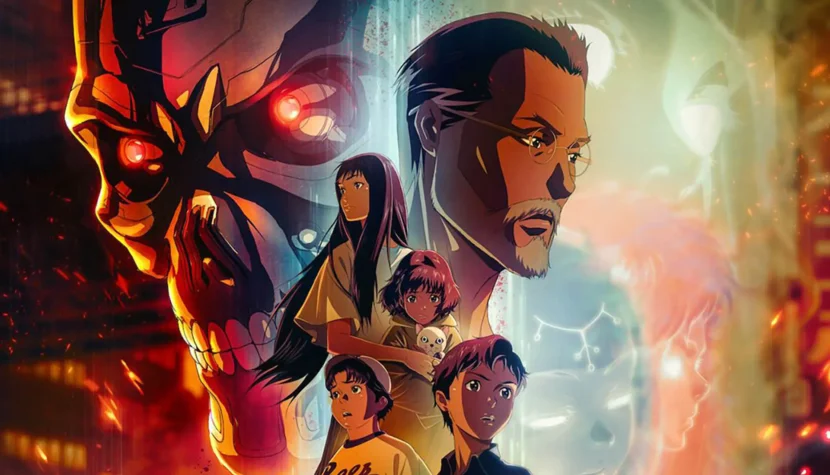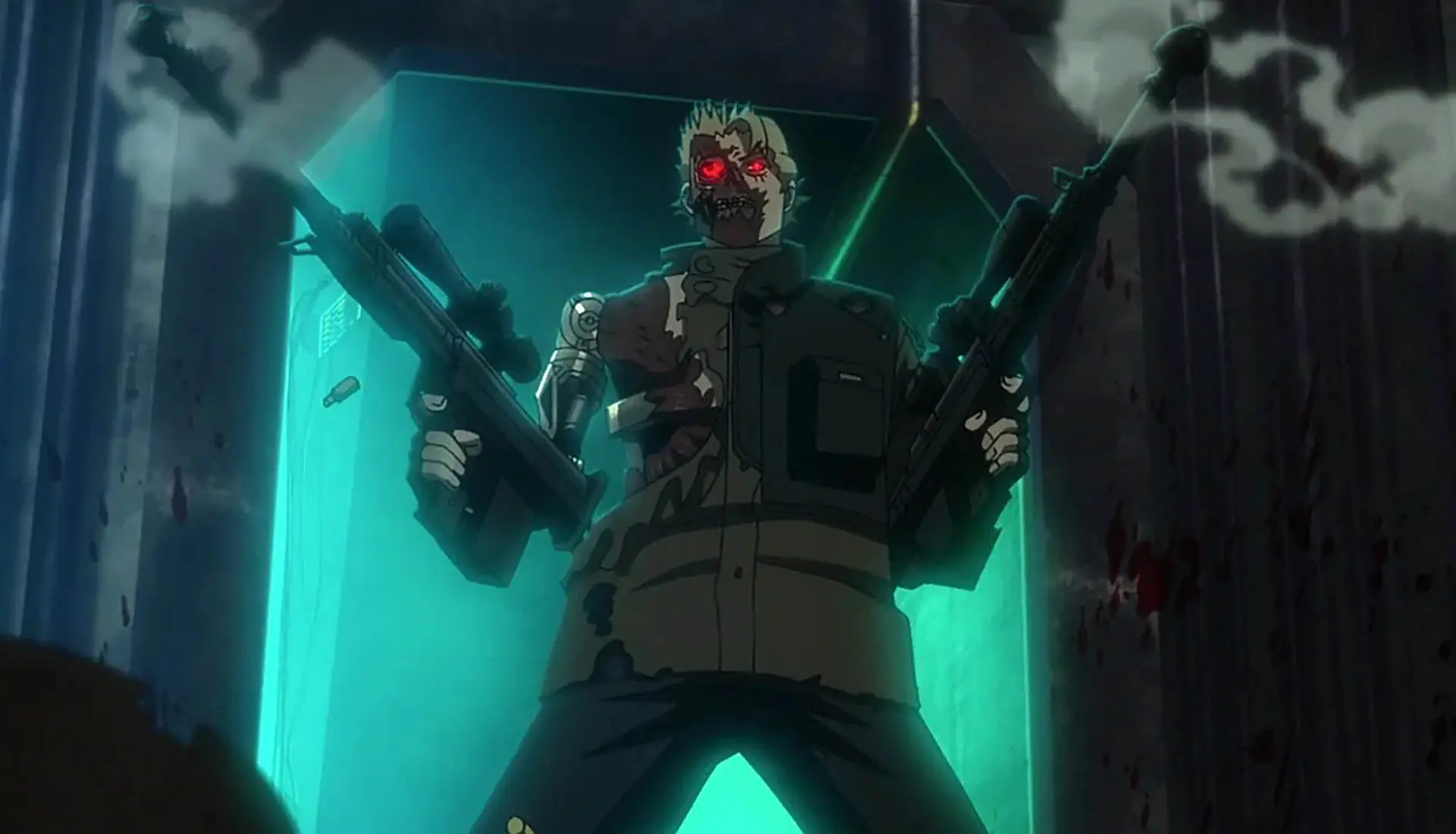TERMINATOR ZERO. The robots will be among us, and then replace us [REVIEW]

The Terminator universe is expanding. The question is whether it can still bring anything new to the table, other than recycling the same motifs. “Terminator Zero” is an attempt to animate the story, which carries those familiar motifs but also tries to philosophically and ethically critique global society’s civilizational progress in a much deeper way. However, the series, directed by “Power” creator Mattson Tomlin and brought to life by Masashi Kudô and an American team, set itself an almost impossible and futile task—depicting the atomic scar on Japan, caused by the Americans. Yet this precedent opened the door for the realization of Skynet’s future plans, which are approaching us rapidly. I invite you on this exciting and colorful journey with a dark conclusion, available on Netflix, where you can find 8 episodes of “Terminator Zero”.
As for the reflections on the state of humanity presented in the series, they are laid out very clearly. Therefore, I won’t recount or analyze them here. However, it’s worth recognizing that attempts to analytically view Japan’s technological development through the lens of atomic apocalypse—which looms over the Land of the Rising Sun like the shadow of the Holocaust over Israel—ultimately result in nothing but obvious conclusions that have already been thoroughly explored in the commercial infosphere from sociological and political perspectives. The most intriguing question, though, is why this analytical attempt was made. Could it be because there is a key event in U.S. imperialism that both created and solidified it, while festering as a decades-old unhealed wound? Dropping the atomic bomb opened the door to future catastrophes. The fact that they haven’t occurred yet is merely the suspension of fate, which machines could ironically activate, watching our actions as a model to emulate—on a grander and more final scale. The robots are among us, and they will remain. We still fail to grasp that concepts like identity, intelligence, personality, and morality don’t belong solely to us. The sooner we reject this outdated mindset from an ancient culture, the better prepared we will be for JUDGMENT DAY. But there will be quite the shock when, instead of angels and Jesus, it’s the machines that come to judge us.

Thus, the Terminator universe has expanded in a very intriguing way, offering a new form of aesthetic expression that handles philosophical analysis much better. In animation, much more can be conveyed and accepted. Imagine a live-action Terminator T-800 who, between ripping off punks’ combat boots and attempting to freeze T-1000 with liquid nitrogen, reflects on himself as a weapon of war, created by a chauvinistic humanity. Schwarzenegger’s face would literally break from embarrassment, and the audience would hide under their seats—not out of fear of humanity’s future, but from second-hand cringe. In “Terminator Zero”, there is finally a space free from embarrassment for such reflections, conducted by AI Kokoro, alongside depictions of the painful domestic situation of her creator, the feelings of lonely children, a robotic cat that is smarter than anyone might expect, time travel, and a Terminator who doesn’t resemble Arnold at all.
Is that a flaw? No, because if Schwarzenegger had lent his image to this production, it would have been too cliché. Instead, the old motifs known from James Cameron’s films are reinterpreted in a new way to engage a generation of viewers who are familiar only with “Terminator: Genisys”. You could say that Cameron has moved to Japan and finally realized the first Terminator with a budget that meets all his needs. The colors of the scenes are breathtaking, and the story, spread out over the episodes and told in more detail, is deeply unsettling. The year 1997, to which the series’ main character, Eiko, travels, is depicted as much more advanced in terms of robotics, while 2022—when little of humanity remains—smells not of fresh napalm in the morning, but of it burning throughout the historical eternity of humanity’s remnants. There is class and timeless beauty in this vision. The skilled hands of the artists have managed to create scenes from fields filled with thousands of skeletons that you immediately want to paint or at least recreate in a live-action production—even though they lack any joy. Sadly, I don’t know if I will ever live to see a production with music that resonates in my mind as much as, say, Nobuo Uematsu’s music from “Final Fantasy”. But if that were the case, it would be perfect. As it stands, a score of 8 is certainly not an overstatement.

After watching, one question still lingers in my mind, and it’s hard to find an answer, even though in the eyes of the machines, it might represent the only sensible reason for our existence. Is there anything beyond the selfish instinct for survival that could give us a chance to continue? Unfortunately, the biological desire to live is insufficient because it is too irrational.

